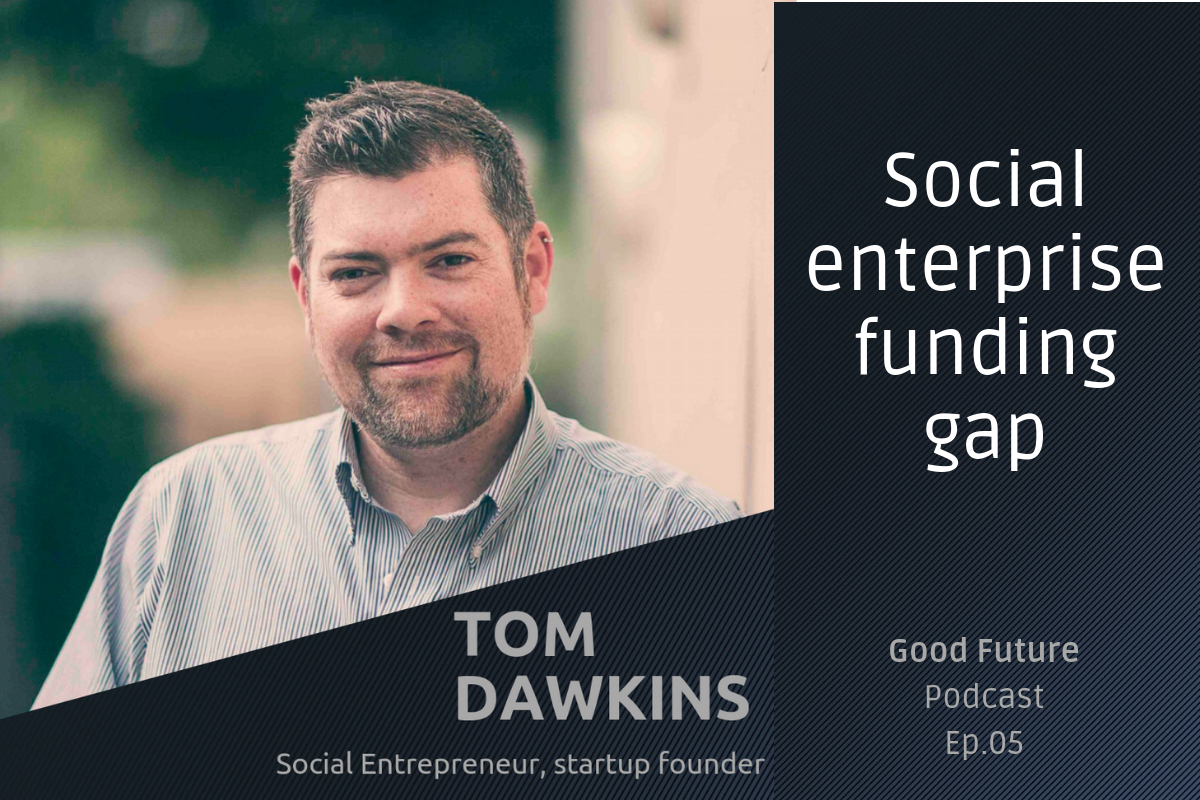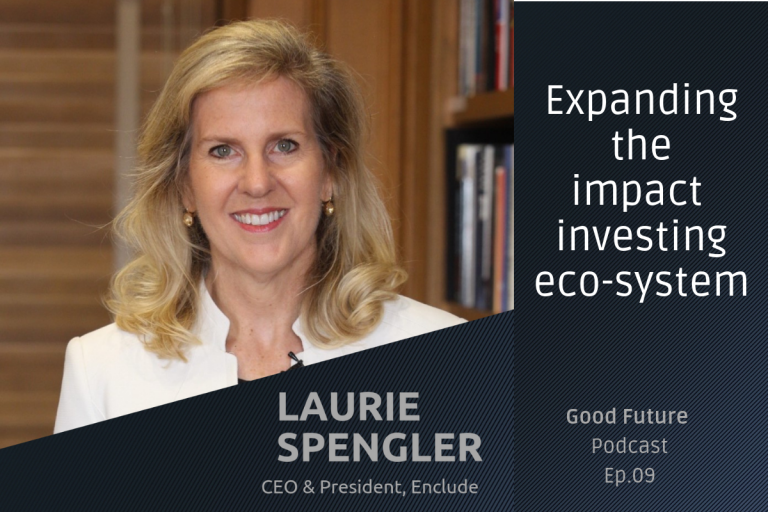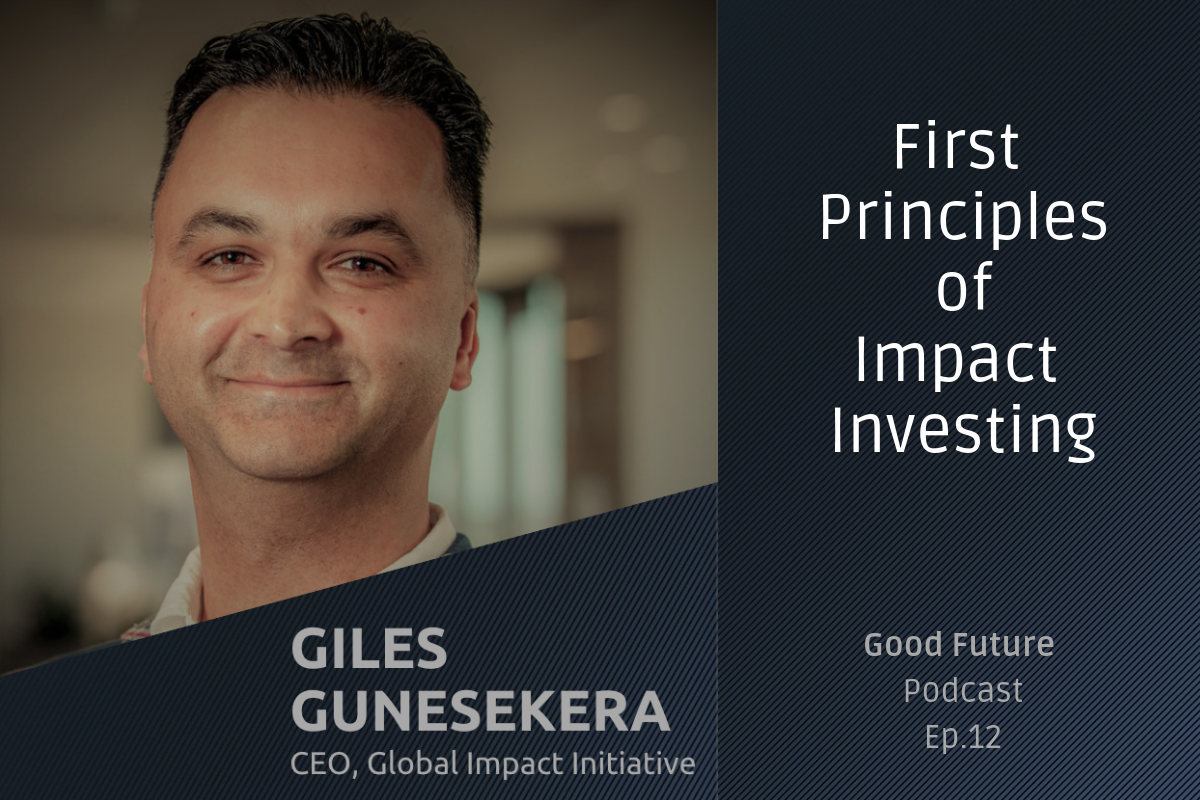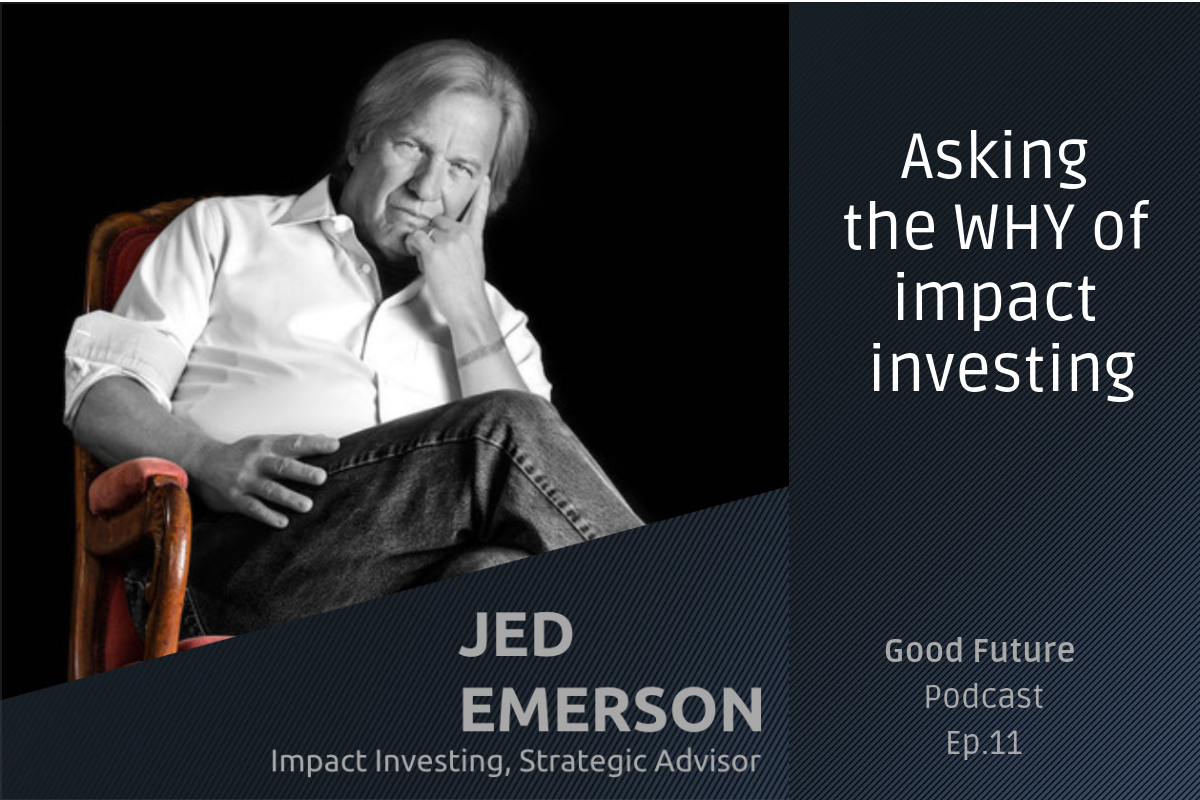Tom Dawkins leads by example. He helps others build social enterprises by building them himself.
He’s seen the challenges, and the funding gaps, facing social entrepreneurs and now he’s working to fix it.
Tom was guest number 5 on the Good Future Podcast, listen here.
Change-maker
Tom’s been a change-maker from the outset. His parents were big advocates for working in a job that has purpose and reflects your values. And he took it to heart, busily building not-for-profits and social enterprises as soon as he left uni.
He was drawn to Silicon Valley, a place where there’s plenty of action, but it’s here he had a pivotal revelation, he found a place that embraces failure. A community that recognises that experimentation is simply the price you have to pay to achieve truly transformational innovation.
And it’s with this tool kit that he and his American co-founder launched their platform, StartSomeGood. Its mission is to source funding and support for great little businesses, but unfortunately there’s still far too many social enterprises that can’t get the funding to get off the ground.
A world of VCs with very few angels
For social enterprises there’s a paradox, you can get plenty of funding when you’ve got a proven product, customers and maybe even some profits. But before that, when you have a great idea and a lean team, it can be really hard to get anybody to put some money behind you.
In Silicon Valley this problem was solved by ‘angels’, and it’s a big part of the eco-system’s success. Angel investors are wealthy individuals, often ex-founders themselves, who spot good ideas, and good teams, and then back them. Risk is high, in-line with a high failure rate. But the pay-off comes when one of these early bets turns into a unicorn.
This is what social enterprises are sorely lacking:
“The social impact sector is essentially all VCs, and no angle investors.” Tom says.
“What we need is an understanding of the risk/reward profile of going early. And an acceptance that when you go early, the majority of them fail, that’s okay, as long as those that do succeed are making such a big impact that it justifies all the expense.”
We need REAL innovation
Finding funding for early stage projects is one thing, but what about those really intractable problems. What about poverty in countries with no infrastructure, what about manufacturers who get shut down because they miss one electricity payment, and how do you build a hospital in a country where the population earns less than $2 a day?
It’s here that you need more than angel investors and VCs, you need truly innovative financing models that can crystallise a whole array of different funders. Impact investors are working hard in this space, but Tom thinks they could do a lot better.
“Impact investors give themselves credit for doing something that they see as innovative, the idea of impact investing is innovative. But that helps them get way with not doing any innovative investing. The actual money ends up going into property. 90% of all impact investment in Australia goes into property and the rest goes into solar.”
He calls it incrementalism, and it’s not going to save the world.
“If in ten years we’re still debating what is a social enterprise, we will have failed utterly.”
So what’s the answer?
Well there’s a lot happening in this space, and this is a large part of what the Good Future podcast is all about.
Here’s some ideas…
Blended Finance pulls together development finance and philanthropic resources to drive sustainable development in developing countries.
International NGOs are embracing innovative finance, and a coalition of these groups recently released a report about how INGOs are embracing impact investing. Written by Humentum.org
Leapfrog and Patamar Capital are Australian impact investors that have maintained a focus on the many opportunities in the Asia-Pacific region. They’re building markets and making profits that other investors ignored.
Just a taste…
That’s just a taste of some of Tom’s juiciest ideas. Have a listen to the podcast for all the startup and social enterprise goodness!
Good Future’s Good Books
Reinventing “Nonprofit Organizations” to Create the Future of Our World
By: Hildy Gottlieb
“It’s for anyone who’s thinking about the future. The underlying belief is that changing the questions that we ask has the power to change the future. And mostly, we ask really bad questions about the future.
And that’s why we have an NFP sector that is so incremental. And less focussed on transformational change and solving problems.”
Stop Looking for Help in All the Wrong Places
By: Peter Block
“When raising an issue, often the very first question people ask is how? But asking how is a way to dampen down our ideas. Putting us back in our box.
Simon Sinek would suggest it’s better to start with why?”
The Autobiography of Nelson Mandela
By: Nelson Mandela
“I love this book. His ability to withstand that incredible journey, and come out the other side with the grace, humility and forgiveness, is an incredible example to all of us.
One of the great humans of the 20th century.”
Follow us…
The Good Future Instagram is pretty great, check it out over HERE
My Twitter is over HERE
And you can get me on LinkedIn HERE





